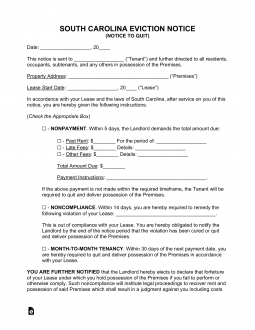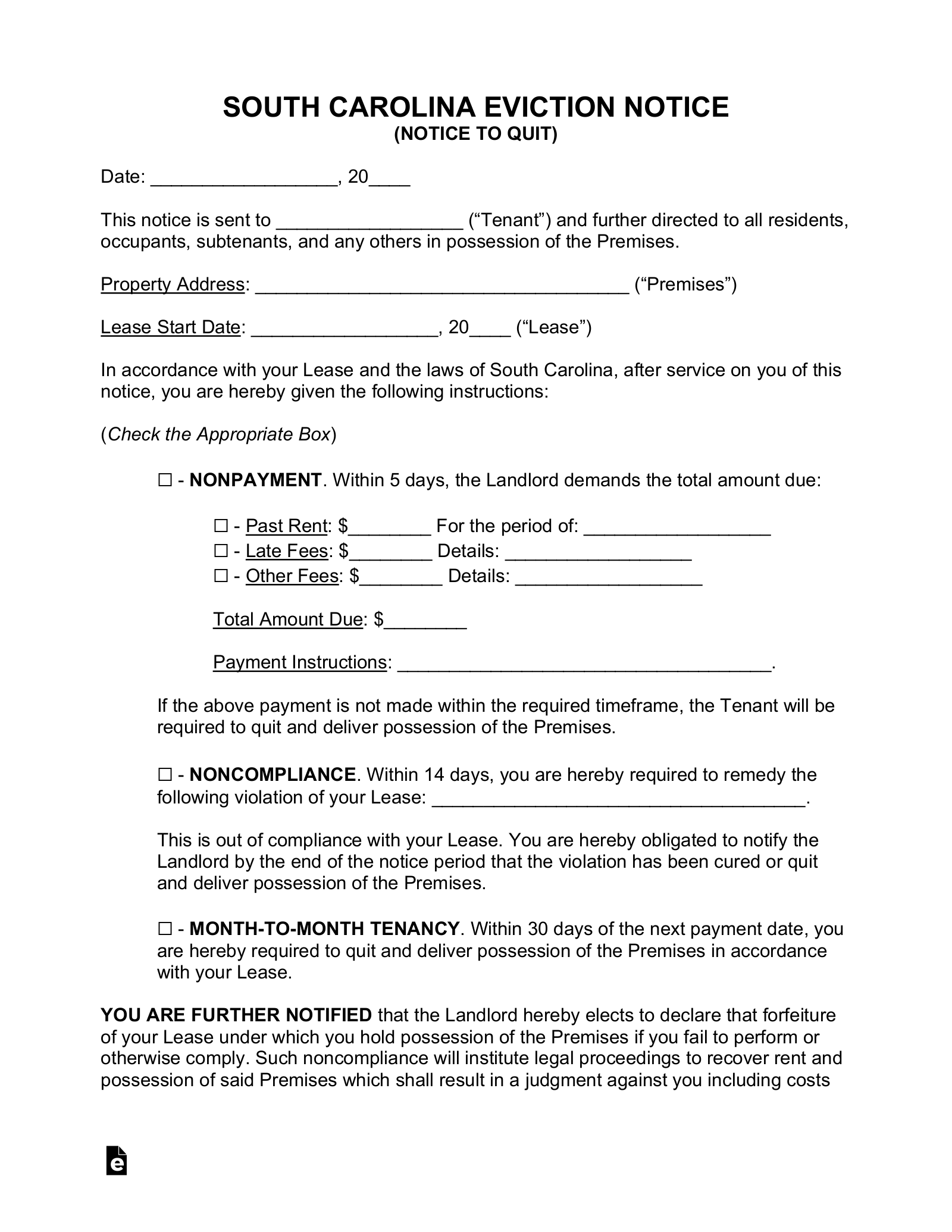Updated April 01, 2024
A South Carolina eviction notice is sent by a landlord to a tenant found to be in violation of the terms of a lease agreement. The notice must be sent in accordance with state laws, with the tenant being given a specific period of time to respond. If the tenant remains in violation of the lease after the notice period ends, the landlord may seek to file for an eviction at the local Magistrate Court.
By Type (3)
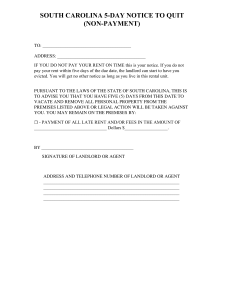 5-Day Notice to Quit (Non-Payment of Rent) – Used when a tenant has failed to pay rent when it is due. The tenant will have five days to comply or vacate. If the tenant does neither, the landlord can proceed in court. 5-Day Notice to Quit (Non-Payment of Rent) – Used when a tenant has failed to pay rent when it is due. The tenant will have five days to comply or vacate. If the tenant does neither, the landlord can proceed in court.
Download: PDF |
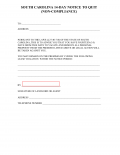 14-Day Notice to Quit (Non-Compliance) – Used if the tenant is breaching any lease term other than for non-payment of rent. The tenant will have 14 days to fix the problem or vacate the premises. 14-Day Notice to Quit (Non-Compliance) – Used if the tenant is breaching any lease term other than for non-payment of rent. The tenant will have 14 days to fix the problem or vacate the premises.
Download: PDF |
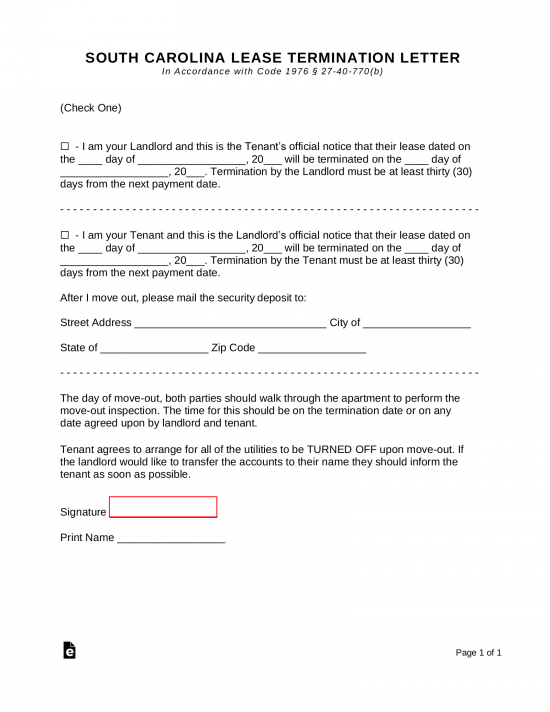 30-Day Notice to Quit (Month-to-Month Tenancy) – Used when a party seeks to end a month-to-month tenancy. A tenant can be evicted if he or she receives this notice and proceeds to stay over the allotted time. 30-Day Notice to Quit (Month-to-Month Tenancy) – Used when a party seeks to end a month-to-month tenancy. A tenant can be evicted if he or she receives this notice and proceeds to stay over the allotted time.
Download: PDF, MS Word, OpenDocument |
Table of Contents |
Prohibited Landlord Actions
Utility Shutoff – If a landlord willfully interrupts a tenant’s essential services—such as electricity, gas, heat, or running water—the tenant may terminate the rental agreement and/or recover up to three months’ rent or twice the actual damages, including attorney’s fees.[5]
Changing the Locks – If a landlord unlawfully removes or excludes the tenant from the premises, the tenant may terminate the rental agreement and/or recover up to three months’ rent or twice the actual damages, including attorney’s fees.[5]
Court Forms
Application for Ejectment (SCCA/732) – A petition filed by landlords when trying to evict a tenant from a rental unit. Before this document can be filed, the landlord must notify their tenant of the eviction by serving them with a written notice to quit.
Affidavit and Itemization of Accounts (SCCA/716) – If the eviction is for the non-payment of rent, this affidavit must be completed by the landlord and included with the Application for Ejectment. This form lists and itemizes the amounts owed by the tenant.
Rule to Show Cause (SCCA/733A) – Delivered to tenants by the court to notify them that an eviction lawsuit has been filed against them. Tenants must respond to this notice or vacate the premises within ten (10) days.
Writ of Ejectment (SCCA/734) – Should a landlord prevail in an eviction lawsuit, this document will be issued which provides the sheriff’s department with authorization to remove the tenant from the premises.
How to Evict a Tenant (3 steps)
1. Serve Notice on Tenant
The first step in an eviction action in South Carolina is to serve notice on the tenant that they are not abiding by the terms of the lease, whether by not paying rent when due or because they are breaching some other term. A landlord must also serve notice on a tenant when if they do not intend to renew a month-to-month tenancy. The various forms of notice are as follows:
2. File an Application for Ejectment
If the tenant does not respond to the notice in the amount of time provided, the landlord may then proceed to the Magistrate’s Court covering the jurisdiction in which the property is located to file an Application for Ejectment (including the Affidavit and Itemization of Accounts for non-paying tenants). The court will issue a Rule to Show Cause with a hearing date, and the landlord must have the tenant served by a process server.
The filing fee for an Application for Ejectment is $150.[6]
3. Receive Court Judgment
If the tenant fails to respond or loses at the hearing, the judge will issue a Writ of Ejectment within five days of the judgment directing the sheriff to remove the tenant. The sheriff must give the tenant 24 hours’ notice.

